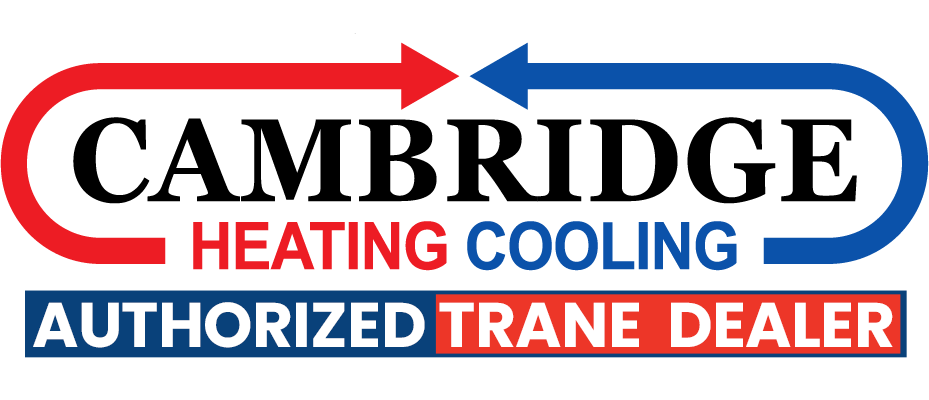Everything You Need to Know About HVAC Systems
Heating, ventilation, and air conditioning (HVAC) systems are essential components of any modern building. These systems help maintain comfortable temperatures, reduce humidity levels, and provide fresh air. In this blog post, we’ll explore the basics of HVAC systems, how they work, and their various types.
How Do HVAC Systems Work?
HVAC systems work by controlling the temperature, humidity, and air quality of a building’s interior. These systems consist of several components, including:
- Thermostat: This is the control center of the HVAC system, where users set the desired temperature.
- Furnace or boiler: These components provide heat to the building.
- Air conditioning unit: This component cools the air when the temperature rises above the desired level.
- Ventilation system: This system ensures that fresh air circulates in the building.
HVAC systems are designed to work together to create a comfortable and healthy indoor environment. The thermostat controls the temperature, and when the temperature rises or falls below the desired level, the HVAC system automatically adjusts the furnace, air conditioning unit, or both to maintain the desired temperature.
The ventilation system is responsible for maintaining the indoor air quality by removing stale air and replacing it with fresh air from outside. This system also helps to regulate humidity levels, which is crucial for preventing mold growth and improving indoor air quality.
Types of HVAC Systems
There are several types of HVAC systems, each with its advantages and disadvantages. The four most common types of HVAC systems are:
- Split HVAC System: This system consists of an indoor unit and an outdoor unit. The indoor unit contains the furnace or air handler, while the outdoor unit contains the air conditioning unit. These systems are the most common type of HVAC systems and are suitable for most homes.
- Hybrid HVAC System: This system combines a heat pump with a furnace. The heat pump provides heating and cooling, while the furnace provides heating during extremely cold temperatures.
- Ductless HVAC System: This system does not require ductwork and is suitable for homes without existing ductwork. These systems consist of an outdoor unit and one or more indoor units.
- Packaged HVAC System: This system contains all components in one unit and is suitable for small commercial buildings or homes with limited space.
Benefits of HVAC Systems
HVAC systems offer several benefits, including:
- Improved indoor air quality: HVAC systems help regulate humidity levels and provide fresh air, which improves indoor air quality and reduces the risk of respiratory problems.
- Energy efficiency: Newer HVAC systems are more energy-efficient, which reduces energy consumption and lowers utility bills.
- Comfort: HVAC systems help maintain comfortable temperatures and reduce humidity levels, which makes indoor spaces more comfortable.
- Noise reduction: HVAC systems operate quietly, which improves the indoor environment’s tranquility.
FAQs
What size HVAC system do I need for my home?
The size of the HVAC system you need depends on several factors, including the size of your home, the number of rooms, and the climate in your area. It’s essential to have an HVAC professional perform a load calculation to determine the correct size for your home.
How often should I replace my HVAC system?
The lifespan of an HVAC system depends on several factors, including the type of system, its usage, and the maintenance it receives. Generally, HVAC systems can last between 10 and 15 years. It’s essential to have your HVAC system serviced regularly and replace it when it starts to show signs of wear and tear, such as increased energy bills, reduced performance, or frequent breakdowns.
How can I improve the energy efficiency of my HVAC system?
There are several ways to improve the energy efficiency of your HVAC system, including:
- Regular maintenance: Regular maintenance, such as cleaning and replacing air filters, can improve the efficiency of your HVAC system.
- Upgrading to a newer model: Newer HVAC systems are more energy-efficient, which can lower your energy bills.
- Installing a programmable thermostat: A programmable thermostat allows you to set the temperature based on your schedule, which can reduce energy consumption when you’re away from home.
- Sealing air leaks: Air leaks can cause your HVAC system to work harder than necessary to maintain the desired temperature, which increases energy consumption.
What is the ideal temperature for my home?
The ideal temperature for your home depends on several factors, including your personal preferences, the season, and the climate in your area. Generally, it’s recommended to set the temperature between 68 and 72 degrees Fahrenheit during the winter and between 72 and 76 degrees Fahrenheit during the summer. However, it’s essential to choose a temperature that is comfortable for you and your family.
Conclusion
HVAC systems are essential components of modern buildings, providing comfortable temperatures, fresh air, and improved indoor air quality. There are several types of HVAC systems, each with its advantages and disadvantages. It’s essential to choose the right system for your home or building and perform regular maintenance to ensure it operates efficiently and lasts for years.





